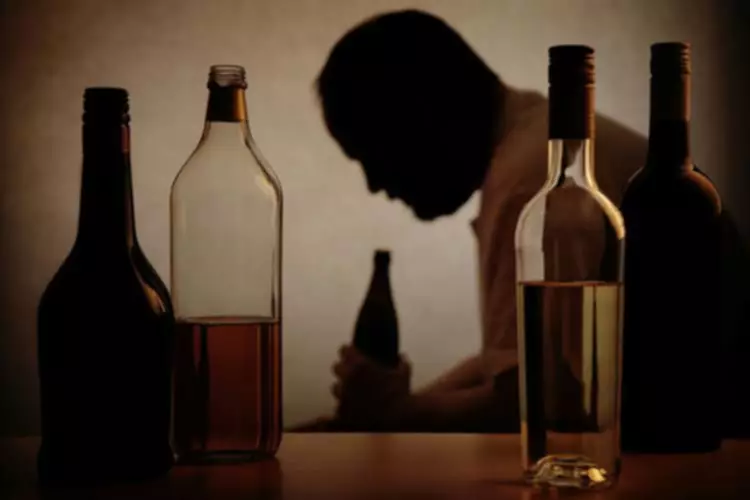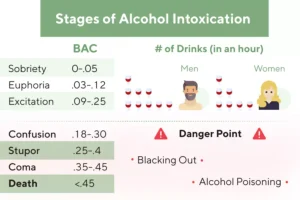
Around the world, the highest levels of per capita alcohol consumption was found in the WHO European Region and the Region of the Americas. Meanwhile, 38 per cent of drinkers were found to have four to five servings on one or more occasions in the preceding month, an amount considered to be heavy episodic drinking. Over three million deaths per year were attributable to alcohol consumption and drug use, a new report https://ecosoberhouse.com/article/anger-and-alcoholism/ from the World Health Organization (WHO) found. Of these deaths, 2.6 million were attributable to alcohol consumption, accounting for nearly five per cent of all deaths, with the highest numbers in the WHO European Region and African Region. Occasional heartburn or indigestion is normal and experienced by most people. Your stomach needs to be an acidic environment to digest food and keep bacteria at bay.
3. Alcohol Consumption
Having kidney stones increases your risk of developing hydronephrosis. It’s important to understand the reason for your discomfort in case it’s a sign of something serious. Read on to learn more about these conditions and how to treat them.
Caron Outpatient Treatment Center
At these stages, CKD moderately to severely impacts kidney function. When your kidneys don’t function the way they should, prescription and over-the-counter medications can build up in your blood and may cause additional damage to your kidneys or other parts of your body… If you are living with diabetes and kidney disease, it is important to stay in control of your blood sugar so you can be your healthiest and avoid other… Check with your doctor, especially if you take medications that might be affected by using alcohol. Women, older people, and those with smaller bodies should be especially careful.
Understanding the Risks of Smoking and Kidney Disease
- Over time, alcohol can damage the kidneys, according to the National Kidney Foundation.
- If you have UPJ obstruction, you may have kidney pain after drinking alcohol.
- Hepatorenal syndrome may appear in patients afflicted with any severe liver disease, but in the United States, studies most often have identified alcoholic cirrhosis as the underlying disorder.
- This type of sudden-onset kidney damage often resolves with time, but it can be lasting in some cases.
Along with oxidative stress, increasing evidence suggests that some nonoxidative mechanisms also factor into alcohol-related organ damage. Specifically, ethanol metabolism produces fatty acid ethyl esters in various organs (Laposata and Lange 1986), which can cause ethanol-induced organ damage. Calabrese and Rizza (1999) found that ethanol induced a significant increase in the levels of fatty acid ethyl esters. They measured the highest levels in the heart, followed by kidney, brain, and liver.
CDC looks to expand capacity to test for H5N1 bird flu in people
The amount of time that it takes for kidneys to become damaged depends on genetics, the amount of alcohol consumed, and many other factors. Drinking alcohol heavily can have several long-term health consequences including type 2 diabetes and high blood pressure. Excessive drinking is considered to be more than four drinks per day.

Alcohol is known to increase your risk for several different types of cancer and cause kidney damage over time. Having an occasional glass of alcohol may not cause any harmful effects how alcohol affects the kidneys if your kidney functions regularly. Still, you should talk with your doctor about the safety and impact of drinking alcohol if you already have kidney disease or kidney cancer.
- The kidneys also maintain the proper balance of fluid and electrolytes.
- Opioid overdose deaths that involved alcohol as a contributing cause went up by 41% (and by nearly 60% in cases where people overdosed on synthetic opioids such as fentanyl) in 2020.
- In the univariable Cox model, it may not meet the proportional hazard assumption.
- They regulate water intake and outtake, they balance the amount of minerals in the body, and they produce vital hormones, according to the Kidney Foundation of Canada.
- These medications work differently from antacids but ultimately have similar effects.
This makes them less able to filter blood and maintain the correct water balance in the body. The hormones that control kidney function can also be adversely affected. Alcohol affects the kidneys’ ability to keep the correct balance of water and electrolytes in the body.
It’s not your life span you need to worry about. It’s your health span.
CYP2E1 is of particular interest when thinking about potential mechanisms for alcohol-related kidney damage. The body mainly metabolizes alcohol using the enzyme alcohol dehydrogenase, which is expressed primarily in the liver. However, during chronic ethanol consumption, the body also uses CYP2E1 in the liver as well as the kidneys.
